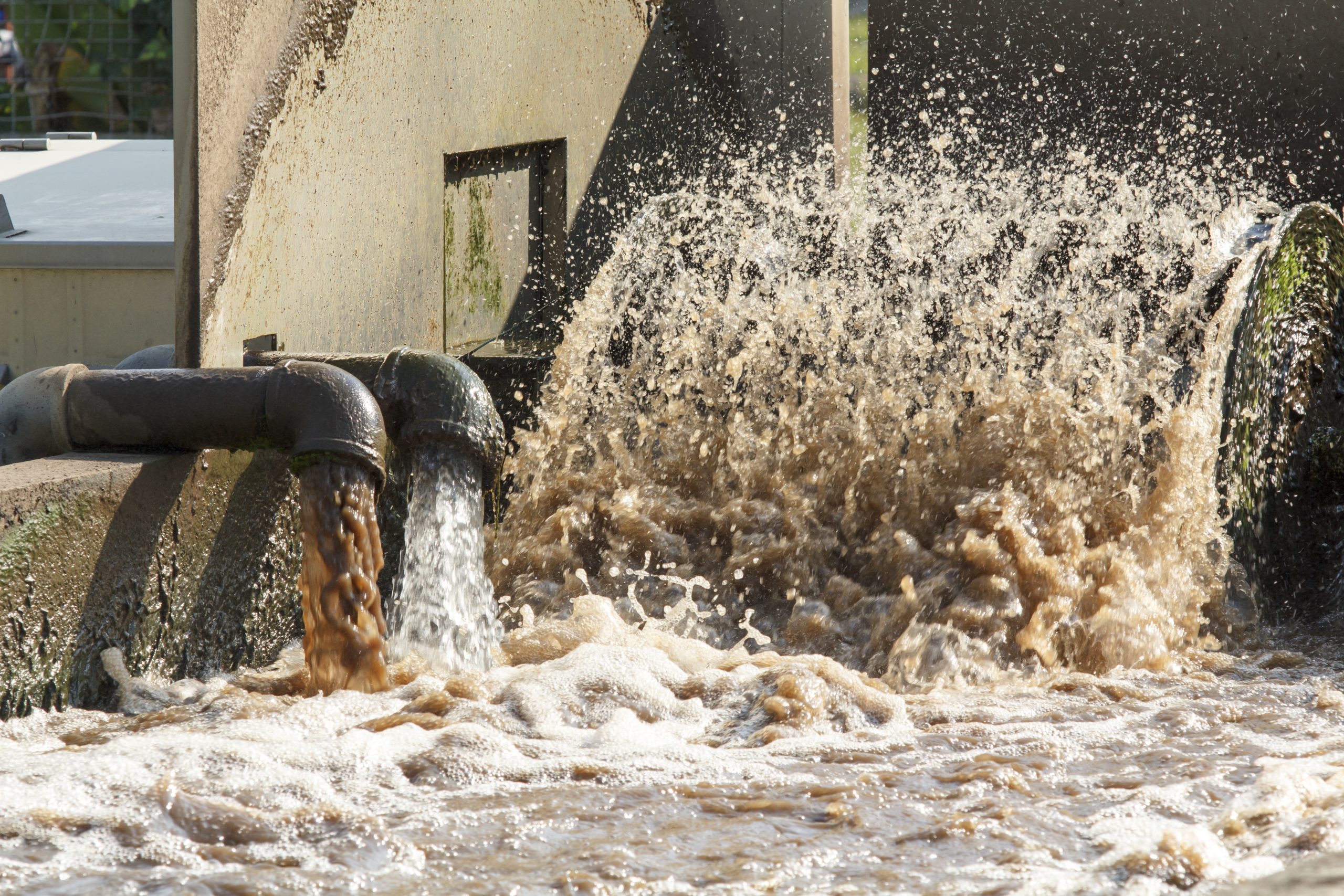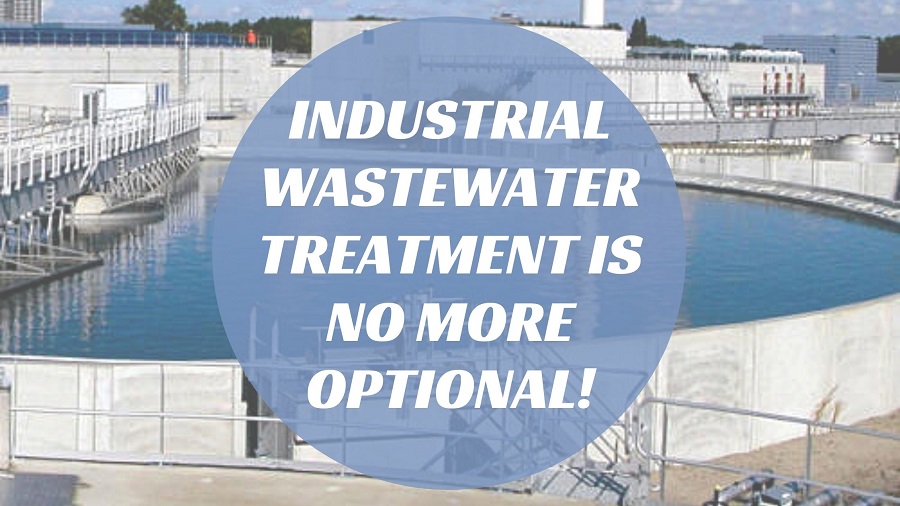Industrial Waste Water Treatment-- Customized Solutions for Effective Wastewater Treatment
Industrial Waste Water Treatment-- Customized Solutions for Effective Wastewater Treatment
Blog Article
Technologies and Developments in Industrial Waste Water Treatment Technologies
The landscape of commercial wastewater treatment is undergoing a transformative shift, driven by developments that enhance both performance and sustainability. As governing requirements advance, the assimilation of AI and machine knowing right into wastewater monitoring systems assures to streamline operations and guarantee compliance.
Overview of Waste Water Therapy Technologies
Wastewater therapy modern technologies include a series of techniques developed to remove contaminants from commercial effluents prior to their release right into the setting. These innovations are important for preserving environmental balance and ensuring conformity with environmental regulations. The primary groups of wastewater treatment include physical, chemical, and organic techniques, each serving distinct functions based on the nature of the contaminants existing.

Organic treatment techniques use bacteria to deteriorate raw material, making them specifically efficient for organic-rich effluents. Techniques like turned on sludge and biofilm activators harness the all-natural deterioration capacities of bacteria, causing significant decreases in biochemical oxygen demand (FIGURE)
Advanced Purification Techniques
Advanced purification methods stand for a vital advancement in the realm of commercial wastewater therapy, enhancing the performance of contaminant removal procedures. Industrial Waste Water Treatment. These methods encompass a series of modern technologies, consisting of microfiltration, ultrafiltration, nanofiltration, and turn around osmosis, which supply sequential obstacles for various fragment dimensions and chemical structures
Microfiltration and ultrafiltration make use of membrane systems to eliminate put on hold solids, microorganisms, and bigger natural molecules, boosting the top quality of effluent prior to more therapy. Nanofiltration connects the gap between ultrafiltration and turn around osmosis, effectively eliminating organic substances and divalent ions, thus decreasing the tons on downstream procedures.
Reverse osmosis offers the highest degree of purification by allowing just water and tiny particles to pass via its semi-permeable membrane layers, making it optimal for recovering high-quality water from industrial effluents. Current developments in membrane modern technology, consisting of the development of even more fouling-resistant and durable products, have actually significantly enhanced functional effectiveness and reduced expenses.
Incorporating these innovative purification strategies not just boosts the general therapy process however also adds to sustainability efforts by allowing water reuse and source recovery in commercial setups. (Industrial Waste Water Treatment)
Biological Therapy Technologies

In addition, the advancement of engineered biological systems, such as membrane bioreactors (MBRs), combines organic treatment with advanced membrane layer filtration. This assimilation allows for higher effluent top quality and decreased impact, making it appropriate for space-constrained commercial centers. Technologies in genetically crafted microbes have likewise emerged, enhancing the look at this now biodegradation of specific pollutants, such as pharmaceuticals and heavy steels, that are traditionally challenging to here eliminate.
In addition, the application of bioaugmentation approaches, where valuable microbes are introduced to improve the existing organic therapy procedures, has actually revealed encouraging results in enhancing therapy efficiency. These developments collectively symbolize a pattern in the direction of more efficient and sustainable biological therapy methodologies that can adapt to the developing intricacies of commercial wastewater streams. As markets continue to focus on ecological compliance, these organic innovations will certainly play a critical role in wastewater administration.

Source Recovery Methods
In commercial setups, the combination of source healing methods has actually ended up being significantly vital for improving sustainability and lessening waste. These approaches concentrate on removing valuable materials and energy from wastewater streams, consequently transforming possible contaminants into reusable resources.
One popular technique is nutrition healing, where nitrogen and phosphorus, frequently existing in excess in wastewater, are recorded and transformed into fertilizers. This not just minimizes ecological impacts however additionally offers a circular economic situation service for farming applications. Additionally, modern technologies such as anaerobic digestion allow for the conversion of organic more information waste right into biogas, a renewable resource source that can counter fossil gas use in industrial procedures.
Moreover, progressed filtering and membrane technologies promote the recovery of commercial spin-offs such as salts and steels. These recovered products can be reintegrated right into production procedures, decreasing the need for virgin sources.
Future Trends in Waste Water Management
As sectors progressively prioritize sustainability, the future of wastewater management is readied to undertake significant changes. Technical developments, such as artificial knowledge and artificial intelligence, will certainly enable extra efficient monitoring and administration of wastewater systems. These modern technologies can predict upkeep needs, maximize therapy procedures, and improve decision-making, inevitably reducing operational expenses and ecological influence.
Moreover, the combination of round economic situation principles will certainly play an essential function in wastewater monitoring. Industries are anticipated to change in the direction of systems that not only deal with wastewater however also recoup useful sources, such as nutrients, water, and power. This shift will certainly minimize waste and advertise the reuse of materials, aligning with global sustainability goals.
Arising therapy methods, such as membrane bioreactors and progressed oxidation procedures, will certainly further improve the performance of wastewater therapy, permitting greater high quality effluents suitable for reuse. Additionally, regulatory structures are likely to evolve, highlighting stricter standards for wastewater discharge and encouraging markets to adopt ingenious treatment services.
Verdict
Finally, the development of industrial wastewater treatment modern technologies demonstrates a substantial change towards improved effectiveness and sustainability. Advancements in sophisticated filtering methods, biological therapies, and resource recovery approaches highlight the market's dedication to environmental stewardship. The integration of synthetic knowledge and maker knowing additionally optimizes these processes, making certain governing compliance and advertising a round economy. Proceeded improvements in these locations will certainly play a vital role in shaping the future of wastewater administration and safeguarding important water sources.
The landscape of commercial wastewater therapy is undertaking a transformative shift, driven by advancements that enhance both efficiency and sustainability.Wastewater treatment modern technologies encompass a variety of techniques created to remove impurities from industrial effluents prior to their launch into the setting.Utilizing the power of biological procedures has actually led to considerable developments in the therapy of industrial wastewater.In addition, the execution of bioaugmentation techniques, where valuable microorganisms are presented to boost the existing biological treatment procedures, has actually shown appealing outcomes in improving treatment efficiency. These innovations collectively symbolize a pattern towards even more lasting and effective organic therapy methodologies that can adapt to the progressing intricacies of commercial wastewater streams.
Report this page